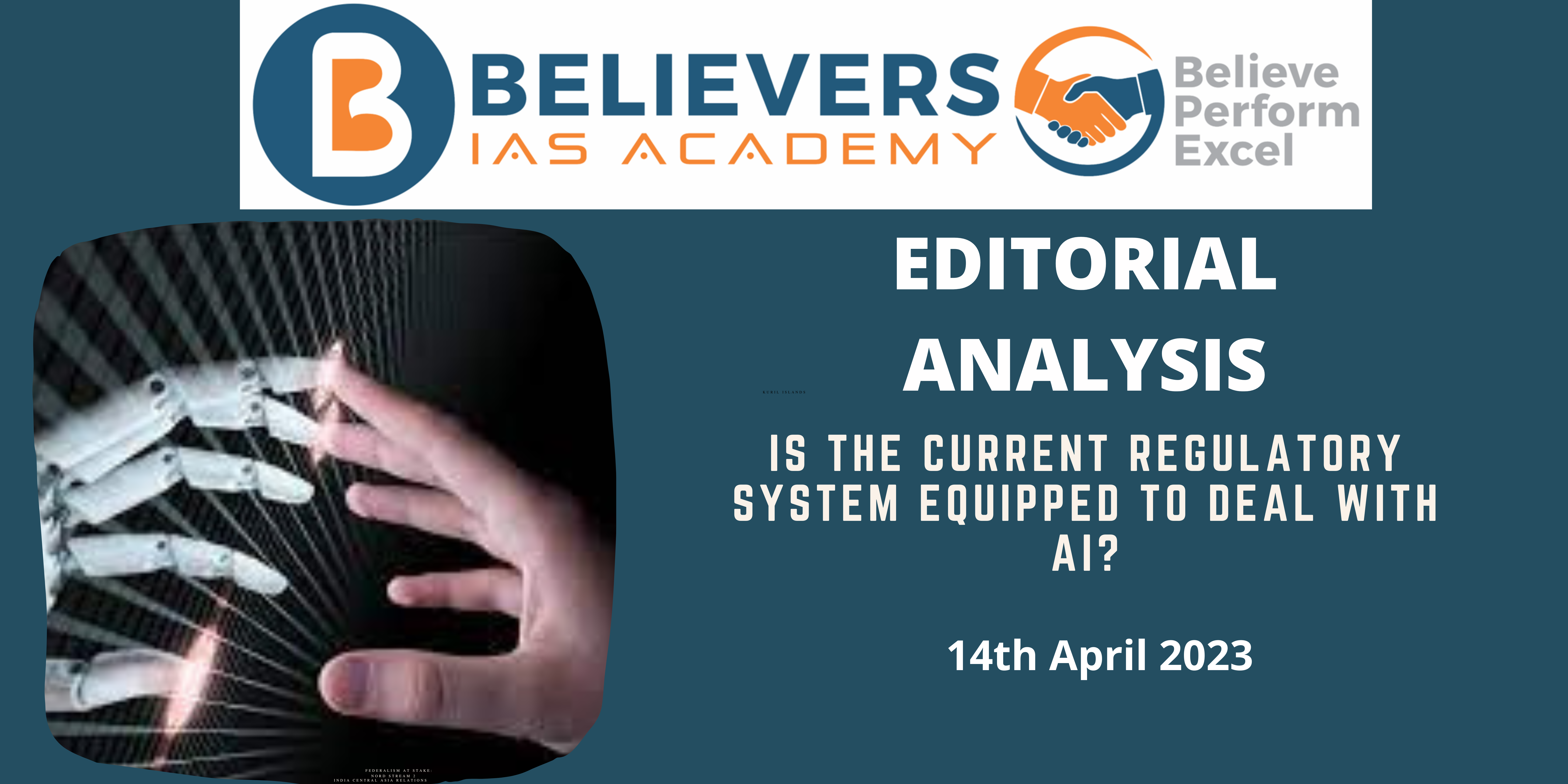Is The Current Regulatory System Equipped To Deal With AI?
Context:
The development and deployment of Artificial Intelligence (AI) technology have sparked concerns about privacy, monopolization, and job loss. Ajay Shah and Apar Gupta examine worries about the economic and privacy ramifications of AI in a discussion chaired by Prashanth Perumal J., as countries struggle to develop rules to prevent the probable exploitation of AI by individuals and governments.
Points to Ponder:
- Ajay Shah believes that the benefits of AI will ultimately improve productivity and societal output, just as previous technical improvements did.
- Apar Gupta agrees with Ajay’s points of view but cautions that there are hazards associated with AI, such as the integration of AI-based systems into political processes, and that the social and economic consequences of new technology should be explored and understood.
- Both Ajay and Apar emphasize the importance of tighter legislation to protect individuals and governments from misusing AI, particularly in terms of privacy and competition.
- Ajay suggests that India thinks about what kind of data the government should have on its citizens and what kind of surveillance tools the government should have. He also mentions that when governments use current computer technology, there is concern about the legibility of our lives.
- Apar adds that legislation governing the deployment of AI-based systems must be devised to meet Supreme Court criteria under the right to privacy judgment, particularly in cases involving facial recognition. He advises that India look at the risk assessment approach used by European regulators as a potential model.
- Ajay is unconcerned with the presence or absence of rivalry in the AI industry, as there are numerous companies worldwide, including OpenAI, Microsoft, Facebook (formerly Meta), and Google.
- Big Tech controls the tech environment, according to Apar, since it has a processing power advantage, a data advantage, and a geopolitical edge. However, he expects that current corporations will consolidate their dominance when AI unleashes the next phase of technological innovation.
- Ajay emphasizes that because India is a poor country with limited capacity, it must focus on its own regulatory and state capacity when it comes to AI. He also mentions that China has taken an authoritarian approach to AI, constructing a Chinese firewall and disconnecting Chinese users from the internet, which is similar to what has begun to happen in India.
Current regulatory system on AI in India
- The article does not provide a thorough description of the present AI regulatory regime. However, experts in the conversation emphasize the importance of stronger regulations and regulations around the deployment of AI-based systems, notably in terms of privacy and competition issues.
- They advise India to pay attention to the risk assessment approach used by regulators in Europe and other international countries, as it could serve as a model.
- Furthermore, they emphasize the significance of checks and balances in the sphere of technology policy and advocate for more critical thought, study, and understanding of every new technology’s social and economic impact.
The regulatory system for AI
- The first stage in any artificial intelligence regulatory framework is to define what AI is. This description should be precise and extensive enough to cover all forms of AI systems.
- Ethical Framework: Because AI systems have the potential to have a substantial impact on society, it is critical to have an ethical framework to govern their development and use. The ethical framework should define rules and guidelines for AI system development and deployment.
- AI systems must meet specific safety standards to be considered safe for usage. This includes requirements for dependability, precision, and robustness.
- Accountability: Mechanisms for accountability should be in place for the development and deployment of AI systems. This includes establishing distinct lines of duty and culpability for any harm produced by AI systems.
- Transparency: AI systems’ operation and decision-making processes should be transparent. This means that users should be able to comprehend how the system operates and makes judgments.
- Data Protection: Because AI systems frequently rely on vast volumes of data, it is critical to have strong data protection policies in place. This encompasses data privacy, data security, and data governance legislation.
- Intellectual Property: Because AI systems may produce new inventions or improve current ones, it is critical to have clear intellectual property standards in place. This includes guidelines for patenting AI systems and safeguarding the intellectual property connected with them.
- worldwide Collaboration: As AI systems grow more common, worldwide collaboration and cooperation on AI regulation are critical. This includes developing and implementing international standards and recommendations for the development and application of AI systems.
Similar Topics
Directing AI For Better And Smarter Legislation
GPT-4 — a shift from ‘what it can do’ to ‘what it augurs’




